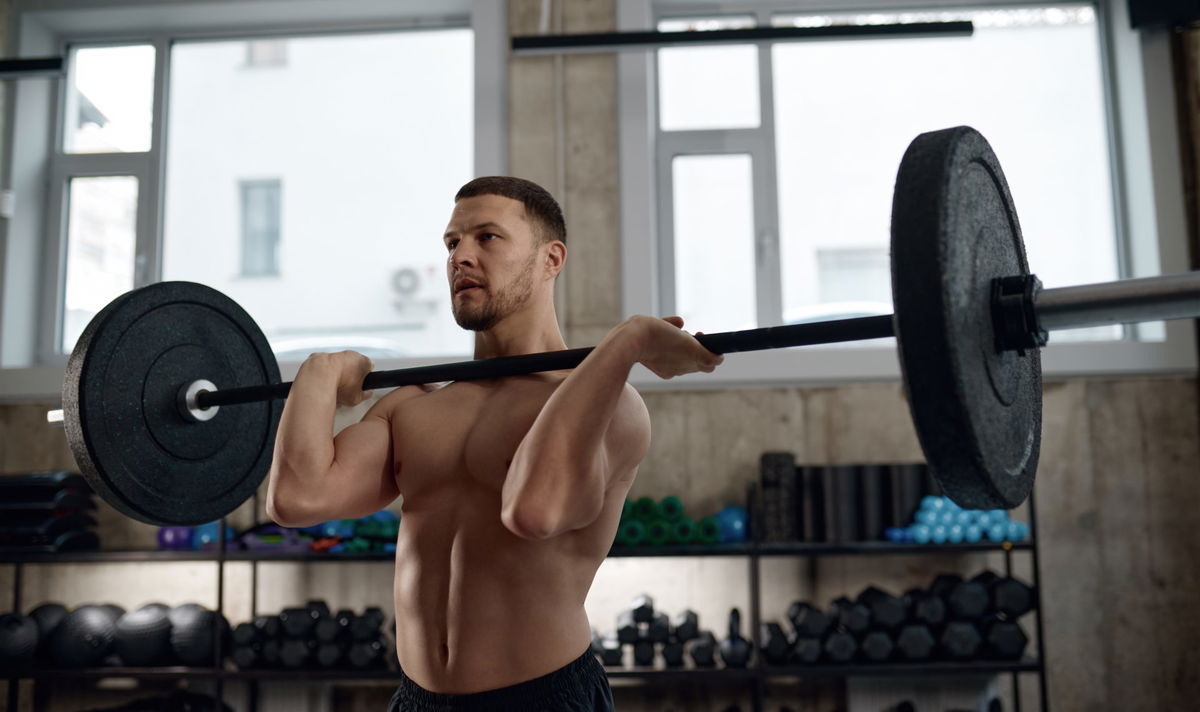
Imago
Muscular guy lifting barbell above head standing at gym, Muscular guy lifting barbell above head standing at gym. Young athlete under physical exertion using sports weight equipment during fitness workout, Muscular guy lifting barbell above head standing at gym. Young athlete under physical exertion using sports weight equipment during fitness workout, 11.03.2023, Copyright: xNomadSoulx Panthermedia33770147.jpg

Imago
Muscular guy lifting barbell above head standing at gym, Muscular guy lifting barbell above head standing at gym. Young athlete under physical exertion using sports weight equipment during fitness workout, Muscular guy lifting barbell above head standing at gym. Young athlete under physical exertion using sports weight equipment during fitness workout, 11.03.2023, Copyright: xNomadSoulx Panthermedia33770147.jpg
As the fitness industry grows, it also drives the growth of the supplement industry. While getting enrolled in a gym is the first step many people take toward becoming fitter, taking supplements becomes the natural next step. As the workouts get tougher, supplements help many gymgoers recover faster. Besides, whey protein, BCAA, EAA, creating, and pre-workout are among the most popular.
Watch What’s Trending Now!
Yet, among these, BCAA and EAA have become the subject of scrutiny. A quick Google search will yield confusing and conflicting results on the effectiveness of these two supplements. That’s because, while countless fitness influencers recommend their followers to take BCAA, almost equally as many tell people it’s a waste of time. So who’s right? The answer is more nuanced than you’d think.
ADVERTISEMENT
BCAA and EAA: Essential enough to warrant supplementation?
Before we learn about BCAA, we need to know about EAA because they are the same. EAA, or Essential Amino Acids, are nine of the 20 amino acids found in a complete protein. The nine are essential for proper function, and BCAA or branch-chain amino Acids are three of the nine EAAs. These three are Isoleucine, Valine and Leucine. Yet, why are these three so important to fitness enthusiasts?
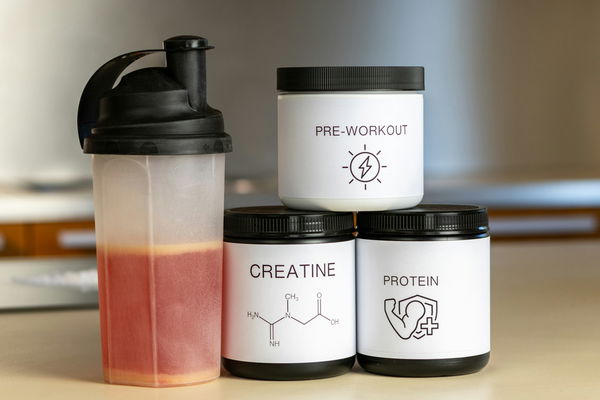
ADVERTISEMENT
These three amino acids, especially leucine, are closely linked to muscle building. While Isoleucine and Valine don’t directly build muscle, they are crucial in helping leucine trigger muscle protein synthesis after a workout. These nine amino acids are considered essential because our bodies cannot produce them. Hence, the only way your body gets its daily EAAs is through the consumption of protein-rich foods.
ADVERTISEMENT
This is also why fitness and bodybuilding enthusiasts, including pro bodybuilders, supplement with BCAA and EAAs. However, this is also where the problem lies with amino acid supplementation. Although our body might not be able to produce them, most protein-rich foods contain enough to meet the EAA and BCAA recommended daily requirements.
Top Stories
Why Tadalafil Is Used in Bodybuilding: Is It Actually Safe and Effective?

Retired for Almost Four Decades Now, Bodybuilding Legend Tom Platz Gives His Take on Modern Bodybuilding

“Told My Wife, ‘Call the Ambulance’”: 53-YO IFBB Icon Reveals Harrowing Heart Attack Experience With an Important Takeaway
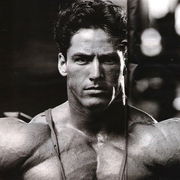
“Enough to Make a Grown Man Cry”: Arnold Schwarzenegger and Ronnie Coleman Leaves Bodybuilding World in Tears, Days After 7x Mr. Olympia’s 76th Birthday
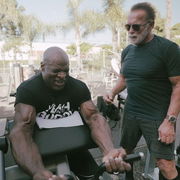
“It Trains Almost Nothing”: Raining Down on Creed III Star Michael B. Jordan’s Parade, Exercise Scientist Debunks ‘One of the Stupid Exercises Ever Invented’

The case against BCAA and EAA supplementation
While the amino acids are essential to normal function and muscle growth, many in the bodybuilding community say you don’t need to take them separately. Renowned science-based fitness influencer and natural bodybuilder Jeff Nippard explained that taking BCAAs doesn’t matter. The bodybuilder explained that a person needs all nine EAAs to build muscle.
ADVERTISEMENT
Nippard said BCAA supplementation is “useless,” and cited a systematic review from January 2022 that compiled the results of 12 different studies. These studies found that despite its popularity, taking BCAAs alone didn’t result in a “performance, strength, and muscle mass.” increase.
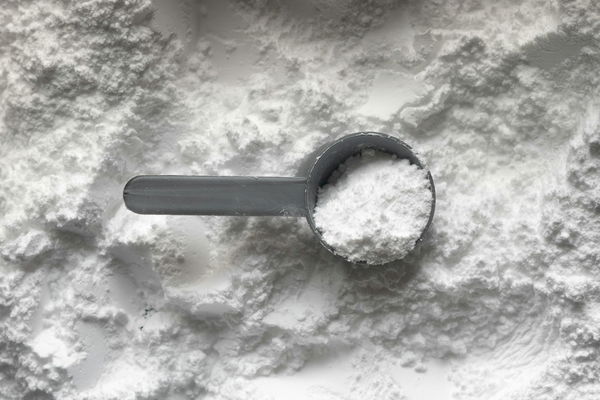
ADVERTISEMENT
Besides Nippard, other influencers like Greg Doucette agree that the three amino acids don’t do much for you. While Greg Doucette and Nippard often disagree on many subjects, this is not one of them. Exercise scientist Dr. Mike Israetel also excluded EAA and BCAAs from his essential supplements list. However, this isn’t the only argument against amino acid supplementation. Besides being ineffective on their own, you might not even need them separately.
ADVERTISEMENT
Whole food and whey protein
While talking about BCAA and EAAs, one can’t help but discuss their most substantial source, whole foods. Many experts, bodybuilders, and fitness influencers have also argued that simply consuming enough complete protein and supplementing with whey protein is adequate. Since animal food is a complete protein source, many argue that an optimized diet already provides enough EAAs and BCAAs.
Hence, additional supplementation results in no benefit. Even if you don’t consume enough EAAs from whole food, almost all whey protein powders contain all 20 amino acids required for muscle building. However, there is one scenario where amino acid supplementation might help.
ADVERTISEMENT
Vegetarians, and especially vegans, often have to rely on supplementation to consume complete protein. While vegans might benefit from amino acid supplementation, people like Nippard say that they are better off consuming EAAs to get all the essential amino acids rather than just three. Hence, even when BCAAs are required, these supplements have a limited use case.
However, that doesn’t mean that amino acid supplementation is on the decline. As the 2022 systematic review suggests, EAA, and especially BCAAs, remain popular among fitness enthusiasts and bodybuilders. According to Forbes, the fitness industry has grown three to four percent per year for the last decade. That growth shows no signs of slowing down. Interestingly, the supplementation industry is actually growing slightly faster at five percent and above per year.
While BCAAs are essential for the body, according to research, they are ineffective when taken alone. Yet, their popularity remains intact. Hence it’s safe to say that despite not boosting your gains, BCAAs are going nowhere anytime soon.
ADVERTISEMENT
Watch this story | 8x Mr. Olympia Ronnie Coleman Disclosed the Amount of Money He Spent on Bodybuilding Competitions During His Career
ADVERTISEMENT
ADVERTISEMENT
ADVERTISEMENT

